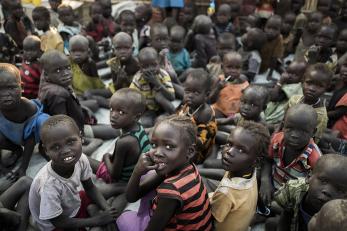
The crisis in Sudan has reached a critical point. The recent eruption of fighting in Khartoum has brought the realities of Sudan’s multiple conflicts to its seven million people. The already weakened health system has come to a standstill, water and electricity have been cut, and food is becoming scarce. The packed metropolis is on the verge of a colossal humanitarian disaster.
This crisis is the result of a process of state disintegration that began during the last years of former President Omar al-Bashir’s regime and worsened during the chaos that followed his 2019 ouster. Sudan has faced a series of rebellions and civil wars since its independence, during which the state and society began to disintegrate. Conflicts have escalated tribal and ethnic tensions, awakening old feuds and rivalries.
The situation has been exacerbated by the proliferation of militias allied with Khartoum, culminating in the creation of the Rapid Support Forces (RSF), a predatory «family business» that has become a major player in national and even regional politics. The RSF’s leader, Mohamed Hamdan «Hemedti» Dagalo, was recruited by his kinsman Musa Hilal as a commander in a tribal militia enlisted by al-Bashir’s regime to fight the rebellion in Darfur.
Despite the dangers posed by the Sudan crisis, there is also an opportunity for change. The disintegration of the state and society offers an opportunity to rebuild from scratch, creating a new system that is more responsive to the needs of the people. The RSF, despite its predatory nature, has also shown that it is a force to be reckoned with. If it can be harnessed and directed towards positive change, it could play a role in shaping Sudan’s future.
The international community has a role to play in this crisis as well. The humanitarian situation in Sudan is dire, and aid is desperately needed. The international community should also work to ensure that the transition to a new system is peaceful and inclusive, with all parties represented in the process. This will require strong leadership and a commitment to working together to achieve a common goal.
The crisis in Sudan is a danger, but it is also an opportunity. It is up to the people of Sudan and the international community to seize this opportunity and create a brighter future for all.